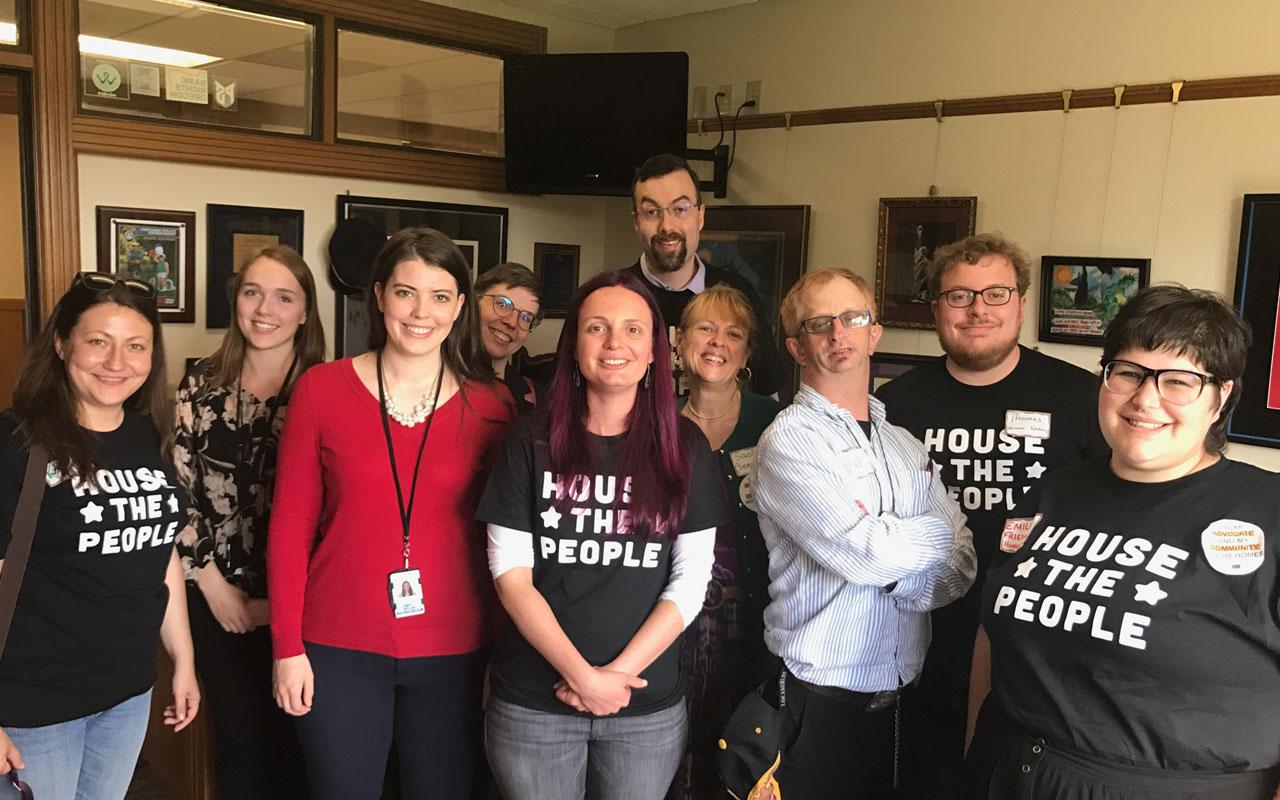Advocating for Affordable Housing
This month’s newsletter spotlights a guest column by Alison McIntosh, deputy director of policy and communications at Neighborhood Partnerships and coordinator for the Oregon Housing Alliance, which is composed of 85+ member organizations and supporters from around the state.
Each year in February, the Oregon Legislature convenes to write or balance a budget, to pass laws to improve our state, and to address pressing issues. Each year, housing advocates come together as the Oregon Housing Alliance to present the Legislature with ideas, proposals and requests to help more Oregonians have safe, stable and affordable places to call home.
In 2018, as in all even-numbered years, the legislative session will be quick — only 35 short days. To meet the constitutionally imposed time limit, legislators focus on a small number of issues and impose strict deadlines for committees. To the legislators and advocates, each day may feel like a week, but the session will move incredibly fast. For housing advocates, this gives limited but important opportunities to advance our work this session.
The Oregon Housing Alliance has come together every session since 2005 to ask the Legislature to create housing opportunities for Oregonians. Our coalition talks about a range of topics, including homelessness, tenant protections, increasing access to homeownership, development of new homes and preserving existing homes.
In 2018, the Housing Alliance will be asking for one big step forward: to increase the document recording fee. This fee is used to ensure more of our neighbors can find safe and affordable homes. The fee is paid when someone buys a new home or property, and it goes to make sure others can have the same. Some of it goes to help our neighbors avoid homelessness through emergency rent assistance, another part goes to build and preserve critical affordable homes throughout Oregon, and a last part goes to help families to afford first homes through down payment assistance or to attend a homeownership education class.
Oregon is facing our biggest housing crisis to date, and we’re glad we have so many tools and partners to meet today’s challenges. We know how to successfully create housing stability and opportunities for families; more resources through the document recording fee will go a long way to address the crisis facing our state. Other priorities will be identified in early 2018, when the Housing Alliance releases its 2018 Housing Opportunity Agenda.
The Housing Alliance is organizing for Feb. 15 another Housing Opportunity Day, a chance for housing advocates and anyone who cares about finding solutions to our housing crisis to go to Salem to learn more about working together to make change. It’s fun and important! Read more here.
Oregon needs us to come together, calling on creativity and innovation, to create housing opportunities that will carry Oregon forward, make families and communities stronger and more vibrant, and build a more equitable foundation for all. Please sign up for our mailing list here to stay in touch with the Housing Alliance and get updates on how you can join this important work.
— Alison McIntosh, deputy director of policy and communications at Neighborhood Partnerships and coordinator for the Oregon Housing Alliance, which is composed of 85+ member organizations and supporters from around the state

Attendees at Housing Opportunity Day 2017 gathered in Salem to advocate to lawmakers for much-needed resources to meet Oregon’s housing needs, including a visit with legislative aides for Rep. Carla Piluso, D-Gresham, and a self advocate with the Oregon C

